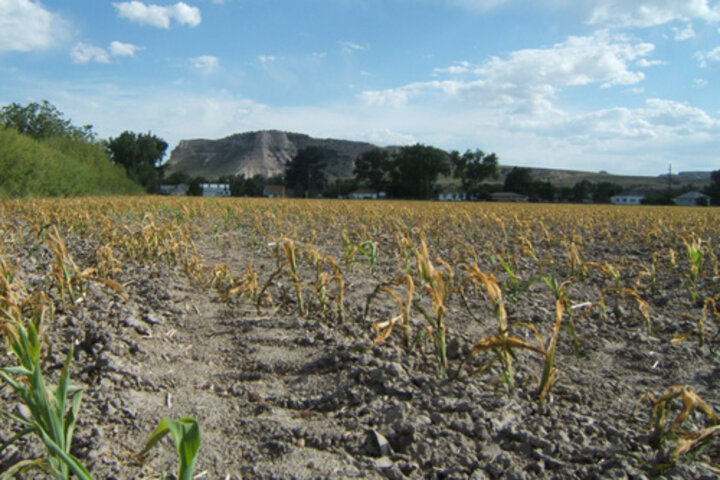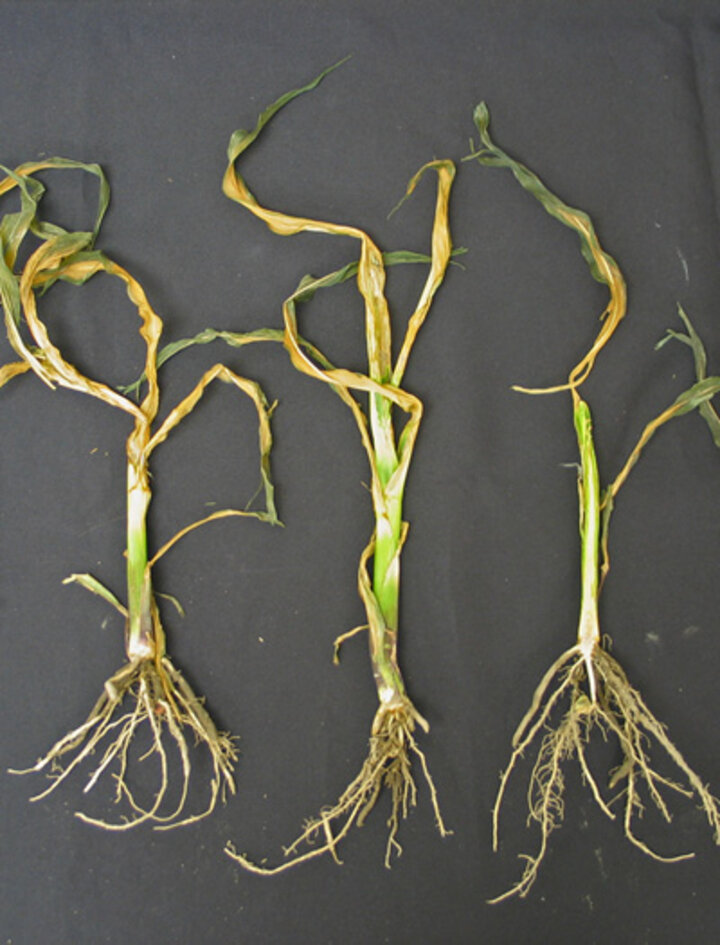June 15, 2007
The June 8 freeze in the Nebraska Panhandle has caused some significant crop damage in scattered areas. It appears that much of the winter wheat crop has survived with little to no injury, especially in the southeast Panhandle (Deuel, Garden, and Cheyenne Counties) where wheat was furthest along in development and temperatures did not generally go below freezing at all or for very long.


Dry beans that were emerged have been seriously injured or killed in some fields and many fields will be replanted. Corn was also damaged, but much of it is recovering because the growing points were not killed (see Figure 1). Recovery depends on the degree of freeze injury which varied depending on temperature, duration of the low temperatures, soil water status, stage of crop development and even hybrid.
Jerry Darnell, manager for Western Sugar Co. in Scottsbluff, said company representatives have visited all their sugar beet fields and didn't find any freeze damage. Sugarbeets are quite cold tolerant due to the high sugar levels in the leaves.
We have looked at corn samples from several locations north and west of Scottsbluff. Damage ranged from only top growth being killed to plant tissue death to the growing point. Plants that were 4 to 5 inches tall and had 3 to 4 inches of undamaged live tissue above the growing point should recover if they have adequate moisture. Plants that had more than 50% of the plant tissue dead above the growing point will have difficulty recovering and will have lost most of their future leaves. An interesting observation has been that fields or portions of fields that were stressed from dry conditions, recent postemergence herbicide treatments, or cultivation seemed to have suffered more frost injury than fields where corn plants were not stressed.
Drew Lyon
Extension Dryland Crops Specialist
Gary Hergert
Extension Soils Specialist
Both at the Panhandle REC, Scottsbluff
